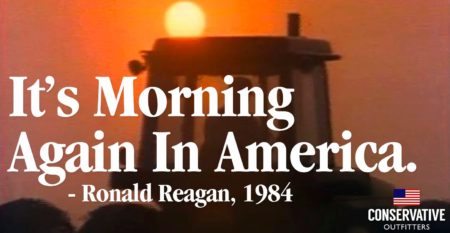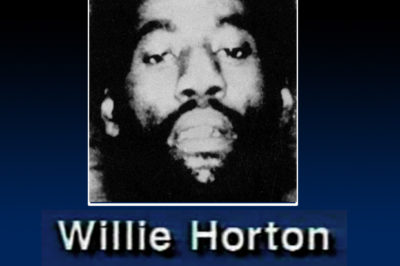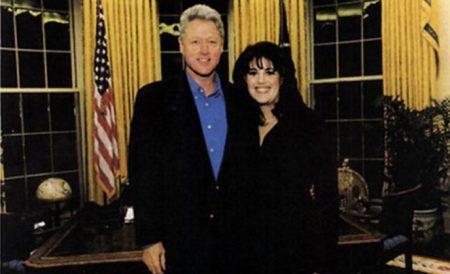 I cannot think of Reagan without grimacing, the first Republican to practice what my friend has called “smash and grab economics,” whereby the wealthiest begin their looting through tax cuts and sweet deals and the public good is given short shrift. Reagan continues the transformation of his party into white revanchists. He speaks of “welfare queens driving cadillacs”, and in a 1976 described “young bucks” using welfare money to “buy T-bone steaks.”
I cannot think of Reagan without grimacing, the first Republican to practice what my friend has called “smash and grab economics,” whereby the wealthiest begin their looting through tax cuts and sweet deals and the public good is given short shrift. Reagan continues the transformation of his party into white revanchists. He speaks of “welfare queens driving cadillacs”, and in a 1976 described “young bucks” using welfare money to “buy T-bone steaks.”
With his “government is the problem” ethos, over eight years he becomes the one chiefly responsible for pushing the Republicans toward an ideology of selfishness as a virtue. Government becomes the enemy. In a democracy, how does one separate that proclamation from the people who choose and staff the government? In a democracy, how does one separate government from nation? Once that idea took hold, there was no other unifying idea to take its place except Party. If the good of the Party is more important than the good of the nation, then what happens? We live with the consequence: the idea of a common sacrifice for a greater good has become an antique sentiment. Reagan used the Presidency to give the notion of disunion an attractive sheen. His legacy — in addition to tax cuts taking on the quality of religious dogma, he accelerates our increasing atomization as a people. If each American is first and foremost for himself, why should anyone believe he or she owes a farthing of money or blood to the country?
 Although toned down, George H. W. Bush brings to the Presidency the same kind of jaunty likability as his son. Unlike Reagan and his son, he knew about war from up close experience as the pilot of a fighter-bomber in the Pacific Theater. That may be one reason he chose not to invade Iraq at the conclusion of the Persian Gulf War. He knew how uncontrollable the direction of any war might become. However, he became President by running one of the ugliest political ads in memory, the Willie Horton commercial which tied a murderer and rapist to Michael Dukakis, the Democratic candidate.
Although toned down, George H. W. Bush brings to the Presidency the same kind of jaunty likability as his son. Unlike Reagan and his son, he knew about war from up close experience as the pilot of a fighter-bomber in the Pacific Theater. That may be one reason he chose not to invade Iraq at the conclusion of the Persian Gulf War. He knew how uncontrollable the direction of any war might become. However, he became President by running one of the ugliest political ads in memory, the Willie Horton commercial which tied a murderer and rapist to Michael Dukakis, the Democratic candidate.
One might argue that we have become an image culture rather than a word culture — a photograph or video having acquired a greater power than words to produce ‘feeling’, to stoke emotion, to strike more deeply into the pleasure and anger parts of the brain and thus to provoke a more acute psychological reaction. Images create and tap into associations. For example, an image of a skull might bring to mind thoughts of death, loved ones who have passed, victims of war, evolutionary changes in humans, archeological digs, medical or anatomical facts, and so on. What were the creators of the Willie Horton ad trying to provoke when they chose this photo as their centerpiece? All black men as potential monsters? Be afraid white America? Bush will protect you because he will kill men like this?
The Clintons come to town, and I did not see them clearly or I made excuses. In the middle of his first Presidential campaign, he hurries back to Arkansas to oversee the execution of a black cop-killer who had been lobotomized by his own suicide attempt. He will not allow Bush to do to him what he did to Dukakis. He too can protect us because he too will kill men like this.
He comes to town with the idea of triangulation — massage one’s message and principals until they find the sweet spot to win or maintain public approval. I understand the need for politicians to do something like this, but in retrospect, it seems as if Clinton did not believe in anything except his own ambition and desires. He did help to create and preside over a good economy, he did pump more money into worthy federal programs while cutting the deficit, he did create the last meaningful restraint on North Korea’s weapons program. He had his accomplishments.
 However, his treatment of Monica Lewinsky as a thing to be used, discarded, and destroyed, and his careful crafting of lies and defenses, now looks like the harbinger of Trump. Perhaps here, we see the acceptance of the lie and then its shrugging off of dishonor by a good portion of the electorate (Democrats in this instance) as a contemporary instrument of domestic power. He should have resigned. He and his wife should have “retreated back into their money or their vast carelessness, or whatever it was that kept them together.”* We would have been better off.
However, his treatment of Monica Lewinsky as a thing to be used, discarded, and destroyed, and his careful crafting of lies and defenses, now looks like the harbinger of Trump. Perhaps here, we see the acceptance of the lie and then its shrugging off of dishonor by a good portion of the electorate (Democrats in this instance) as a contemporary instrument of domestic power. He should have resigned. He and his wife should have “retreated back into their money or their vast carelessness, or whatever it was that kept them together.”* We would have been better off.
During the Clinton years, we also see many conservative Republicans begin to act as if their Party is a religion complete with saints, dogmas and devils — St. Reagan, tax cuts good, government bad, poor people lazy, Democrats as the ENEMY, compromise as heresy. That trend has only accelerated and intensified.
If the opposition Party is the real enemy, where does that leave the idea of democratic institutions, elections and governance — why should one’s enemy ever hold power?
David Brooks believes that “the civil war in the Balkans was the most important event of that period. It prefigured what has come since: the return of ethnic separatism, the rise of authoritarian populism, the retreat of liberal democracy, the elevation of a warrior ethos that reduces politics to friend/enemy, zero-sum conflicts.”
Look around. Do you not sense that we are slouching toward this outcome, one tweet at a time, one dead child at a time?
*The Great Gatsby